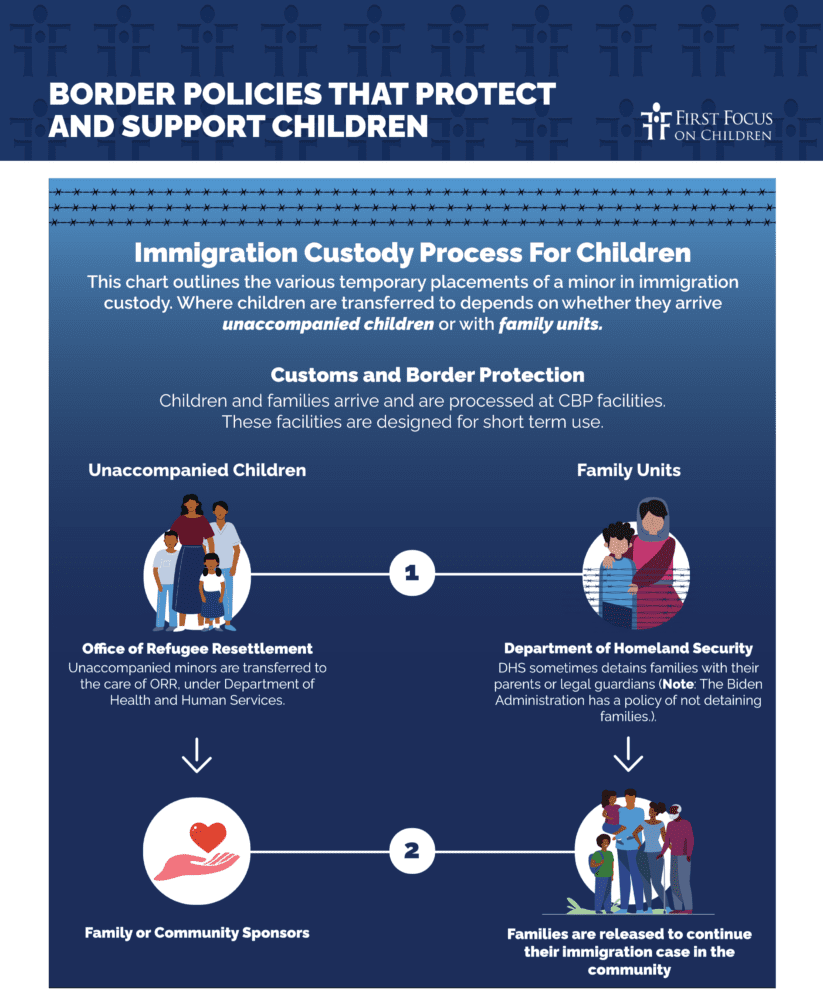For several years, the demographic of those arriving at our border seeking safety has shifted to a greater proportion of children and families. These children and families make a perilous journey to flee persecution, torture, trafficking, and abuse in their countries of origin. Too often, children and families are met with rejection at our border that exposes them to violence and exploitation, family separation, detention, and a complex and confusing immigration system that they must navigate without support. These deterrence-based policies threaten children’s health, safety, family unity, and general well-being, and increase the risk that our government will return children and families to the very perils they fled.
U.S. law requires the federal government to ensure that no person is sent back to a country where they would experience harm and that every child in immigration custody is treated with dignity and respect. Additionally, the American people support policies that ensure our immigration system is fair, humane, and provides due process. Voters also agree that the government must apply a “best interests of the child” standard for all government policy. Prioritizing children’s best interests will result in asylum policies that are orderly, fair and humane. To protect and support children arriving at our border, the U.S. must give them:
- A welcome and safe reception at the border. Children and families should have unrestricted access the U.S. border to seek protection, as the law requires. The government should create child-friendly reception centers staffed with professionals in child protection that meet children and families’ immediate and basic needs in the shortest period possible. Unaccompanied children should be transferred to the custody of Health and Human Services, and families should be referred to government-supported nonprofits that provide shelter, reception, and support for people to get to their final destinations. Throughout this process, families should remain together.
- Support to pursue their claim for protection in community. Rather than being jailed or subject to electronic surveillance, children and families should have access to voluntary and wholistic services in the community to help them understand the immigration system and meet their social and emotional needs through basic health, mental health, housing, and income support services. Unaccompanied children should have access to family and community-based placements until they are promptly and safely reunited with a sponsor and have access to services in their communities once released from government custody.
- A fair opportunity to make their claim for protection. Children and families should have guaranteed access to legal representation and adequate time to begin to recover from their journey and build their case. The government should implement child-friendly policies and procedures for immigration proceedings, including a trauma-informed children’s corps of asylum officers and immigration judges that handle all child and family cases.
